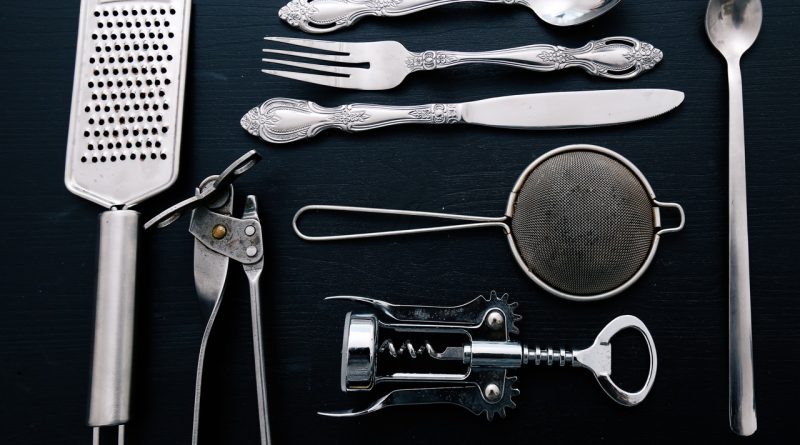How Zwilling Maintains Consistency Across Factories
Zwilling, a renowned name in kitchenware and cutlery, has built its reputation on the consistent quality of its products. With multiple factories around the globe, maintaining this level of quality is no small feat. The company employs a multifaceted approach to ensure that every product meets its high standards, regardless of where it is manufactured. This article delves into the strategies Zwilling employs to maintain consistency across its factories, covering quality control, standardization, advanced technology, and workforce training.
The Importance of Quality Control in Manufacturing Processes
Quality control is a critical component in any manufacturing environment, particularly for a brand like Zwilling that prides itself on high-performance kitchen tools. Implementing rigorous quality control measures ensures that every product is subjected to thorough testing and scrutiny before it reaches the consumer. Zwilling employs a multi-layered quality assurance system that includes inspection at various stages of production, from raw material selection to final product testing. This systematic approach minimizes defects and guarantees that the products meet stringent quality benchmarks.
Furthermore, quality control is not merely an end-of-line process but rather an integral part of the entire manufacturing workflow. Zwilling incorporates feedback loops that allow for continuous improvement based on quality assessments. By analyzing data from quality checks, the company can identify patterns or recurring issues and swiftly implement corrective actions. This proactive stance helps in maintaining the overall quality of the products and reinforces customer trust in the Zwilling brand.
In addition to internal quality checks, Zwilling also adheres to international quality standards, such as ISO certifications. These standards serve as a framework for continuous improvement and ensure that the company is meeting global expectations. By committing to stringent quality control processes, Zwilling not only enhances product reliability but also fosters a culture of excellence throughout its manufacturing facilities.
Standardization: Key to Zwilling’s Consistent Products
Standardization plays a pivotal role in ensuring that Zwilling’s products are consistent across various factories. By establishing clear specifications and guidelines for materials, design, and manufacturing processes, Zwilling minimizes variability in production. These standards are documented and communicated across all factories, ensuring that every location adheres to the same high-quality benchmarks, regardless of geographical differences.
Moreover, Zwilling’s commitment to standardization extends to supplier relationships. The company works closely with its suppliers to ensure that the raw materials used in manufacturing are uniform and meet specific quality criteria. This alignment helps in maintaining consistency in the final products, as even the smallest variation in materials can affect performance and durability. By prioritizing standardization in both processes and materials, Zwilling effectively enhances product reliability.
Additionally, Zwilling conducts regular audits and reviews of its manufacturing processes to ensure compliance with established standards. This not only helps in identifying areas for improvement but also reinforces the importance of adherence to quality benchmarks among employees. The emphasis on standardization is a cornerstone of Zwilling’s strategy to deliver consistently high-quality kitchenware to its customers.
Advanced Technology: Ensuring Precision Across Factories
In an age where technology drives innovation, Zwilling leverages advanced manufacturing technologies to ensure precision and consistency in its products. Automated machines and robotics are utilized in various stages of production, from cutting to finishing, allowing for a level of precision that is difficult to achieve manually. This automation not only speeds up production but also reduces the margin for human error, thereby enhancing overall quality.
Furthermore, Zwilling employs sophisticated quality monitoring technologies that utilize sensors and data analytics. These tools enable real-time monitoring of production processes, allowing for immediate adjustments if deviations from quality standards occur. By harnessing advanced technology, Zwilling can maintain tighter control over production and quickly address any inconsistencies that may arise.
The integration of technology also facilitates better communication and coordination between factories. With centralized data systems, Zwilling can share insights and best practices across its global manufacturing network. This interconnectedness ensures that all factories are aligned in their approaches, further reinforcing the consistency of Zwilling products, whether they are made in Germany, Japan, or any other location.
Training and Development: Cultivating Skilled Workforce
A skilled workforce is essential for maintaining the high standards associated with Zwilling products. The company invests significantly in training and development programs for its employees, ensuring they are well-versed in the latest manufacturing techniques and quality standards. These programs include hands-on training and workshops that emphasize the importance of quality control and standardization in the manufacturing process.
Training is not a one-time event at Zwilling; rather, it is an ongoing commitment. Employees are encouraged to participate in continuous education programs that focus on emerging technologies and best practices in manufacturing. This dedication to workforce development helps ensure that all employees are equipped with the knowledge and skills necessary to uphold the company’s quality standards.
Moreover, Zwilling fosters a culture of accountability and pride in craftsmanship among its workers. By instilling a sense of ownership and responsibility for the quality of their work, employees are more likely to take the necessary steps to ensure consistent product quality. This strong emphasis on training and workforce development, combined with a culture of excellence, plays a crucial role in maintaining Zwilling’s reputation for high-quality kitchenware.
Maintaining consistency across factories is a complex challenge, but Zwilling has effectively navigated this landscape through a strategic focus on quality control, standardization, advanced technology, and workforce training. By embedding these practices into its manufacturing processes, Zwilling not only ensures that each product meets its high standards but also builds a strong foundation of trust among consumers. As the brand continues to evolve and adapt to the changing landscape of kitchenware, its commitment to consistency remains unwavering, ensuring that food lovers everywhere can rely on Zwilling for quality tools in their culinary endeavors.
